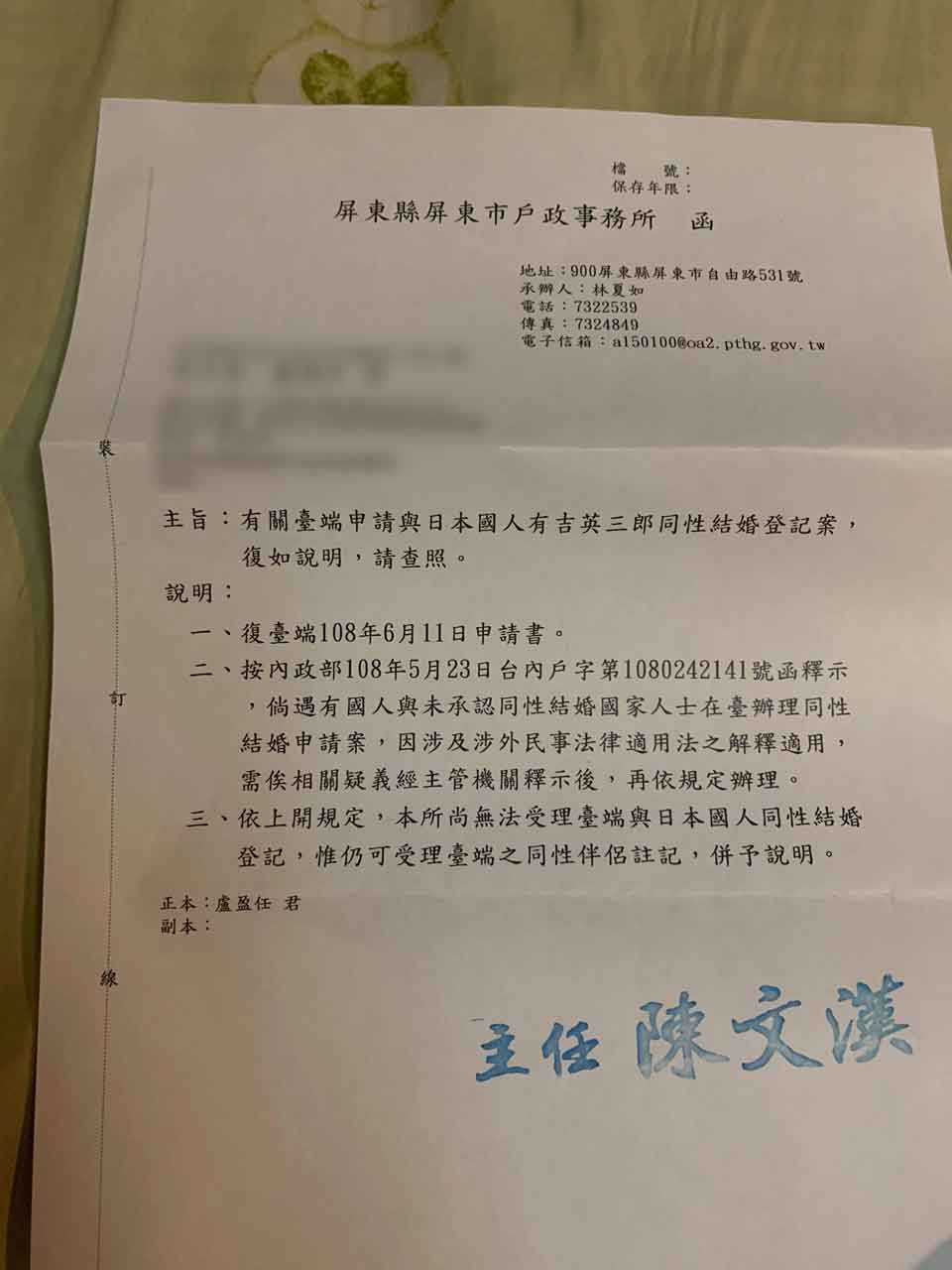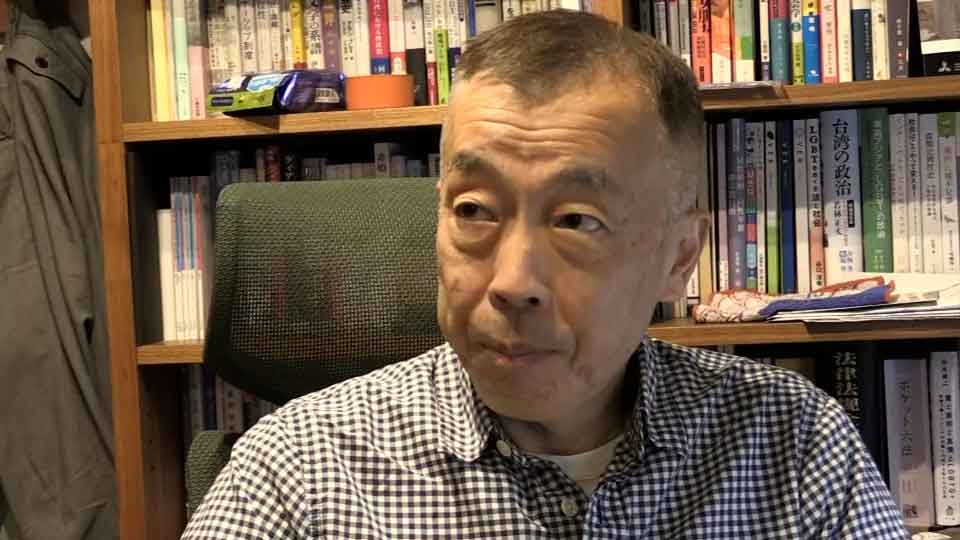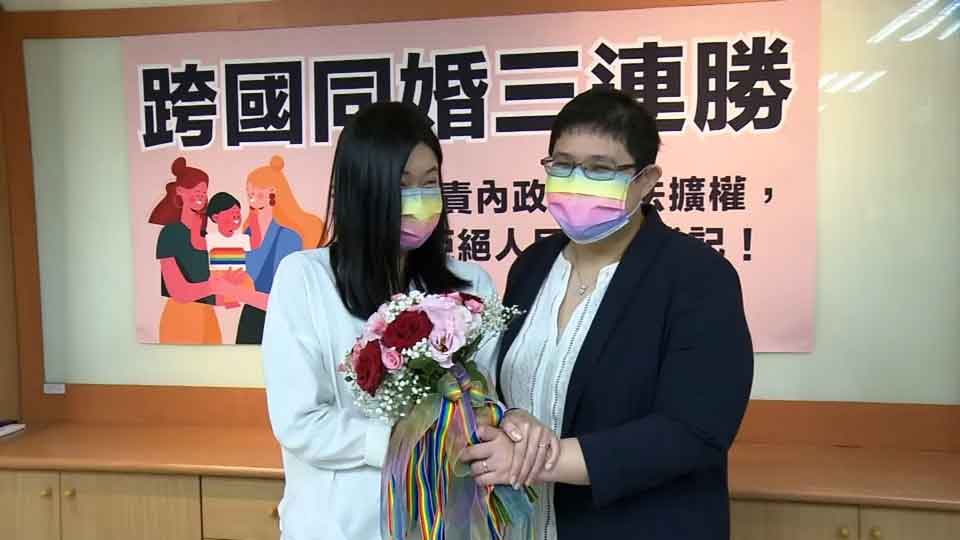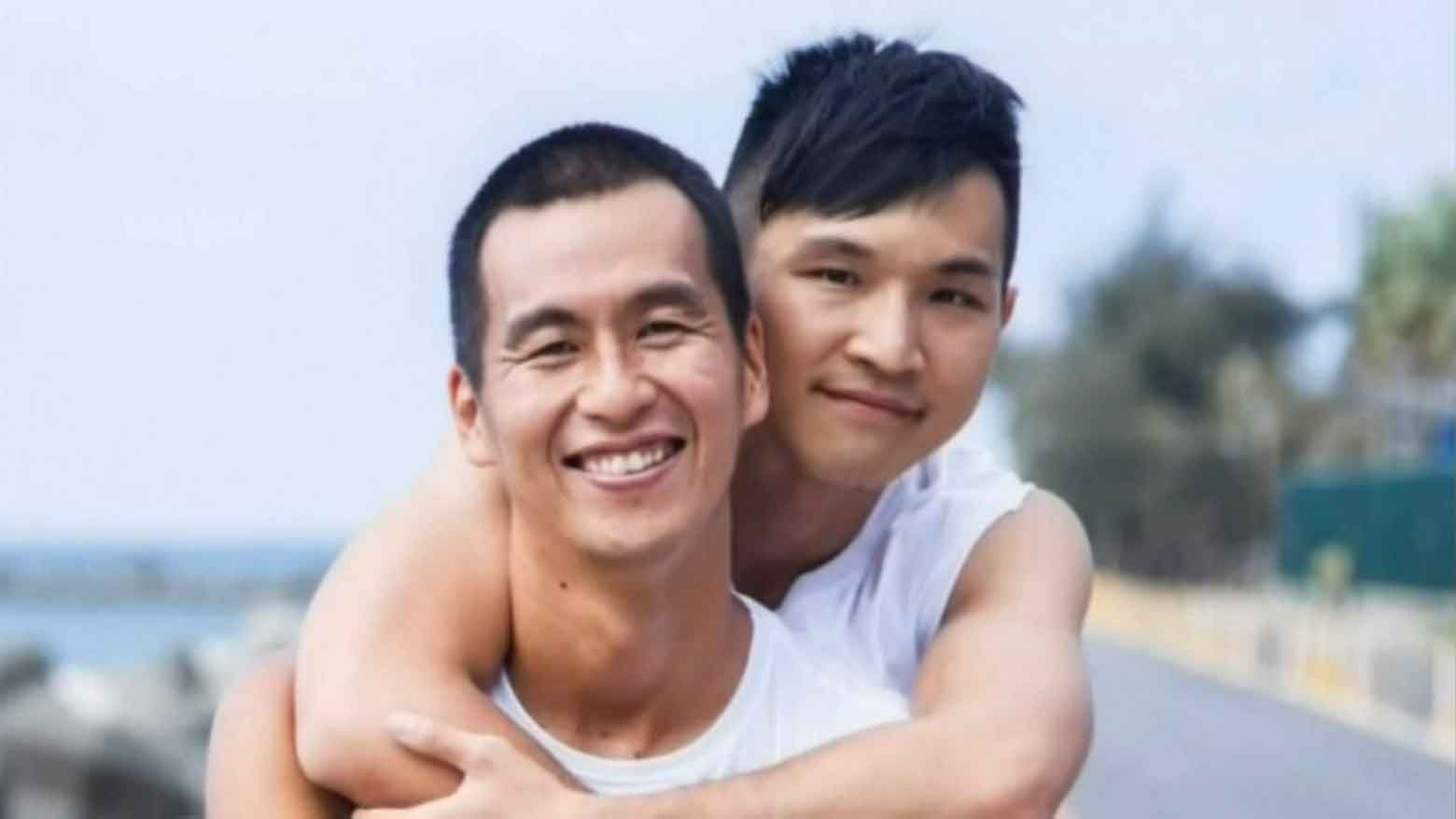Nationality a barrier to marriage
Ariyoshi Eizaburo and Lu Yin-jen were thrilled when they heard Taiwan was changing its laws to permit same-sex marriage. The Japanese man and his Taiwanese partner soon started making preparations to wed. But days before the law was set to pass, with their wedding plans in full swing, they received some demoralizing news: due to the law in Ariyoshi’s native Japan, the marriage would not be legally recognized.

They went ahead with the wedding ceremony, celebrating in front of 200 friends and family –- some of whom flew in from Japan. But while their marriage is endorsed by loved ones, it has no legal status.

"I had all the necessary documents," Ariyoshi said, "so naturally I assumed it would be fine. I was so upset and frustrated when I thought about how it would have been okay if I’d been born in a country where same-sex marriage was allowed, instead of Japan."
Life-long commitment
Ariyoshi realized he was gay at a young age, but decided to keep it a secret for the rest of his life. "I always had a positive view of marriage," he says, "but I regarded it as something for other people."
In 2015, at the age of 36, Ariyoshi moved from Japan to Taiwan. He immediately felt at home on the island which is known for its liberal attitude and where LGBTQ people are more open and confident about their sexual identity. Three months after making the move, Ariyoshi met Lu Yin-jen and fell in love.
"We want to get married because we want to be together forever – it’s that simple," says Ariyoshi. His partner, Lu, shares the conviction: "Marriage is proof of my commitment to spend the rest of my life with my partner. That’s why it’s so important."
The legal restriction has placed an additional strain on the relationship and others like it. Because Ariyoshi cannot be recognized as a spouse, he is not entitled to a spouse visa. Instead, he has a work visa that he is required to renew every two years. If at some point in the future he is prevented from working, he may be forced to leave Taiwan.
A legal block for some international couples
The problem for Ariyoshi and Lu stems from a Taiwanese law that applies to international marriages. It states the union is governed by the national laws of each person. That means LGBTQ Taiwanese people can only marry foreigners from countries where same-sex marriage is also legal.

Professor Suzuki Ken of Meiji University, an expert in Taiwanese law who works to support LGBTQ rights, says the issue for international couples existed even before same-sex marriage was legalized. He explains that opponents of same-sex marriage argued that "if the law was repealed, homosexuals would flood into Taiwan, turning Taiwan into a gay island, and so on."
"For this reason, priority was given to the passage of the law on same-sex marriage, and the issue of nationality was postponed."
Legal challenge
Late last year, Ariyoshi and Lu filed a lawsuit in a bid to have their marriage registration accepted. Three other couples have already won similar cases.
They include a woman from Singapore – which, like Japan, does not recognize same-sex marriage - and her female Taiwanese partner whose case went to court.

The Taipei High Administrative Court issued a ruling last year ordering the household registration office to accept the women’s marriage registration. There was no appeal, and when the couple submitted their marriage papers last month they were approved.
Professor Suzuki says the precedents suggest Ariyoshi and Lu could also win their case.
Even if the pair are able to marry in Taiwan, the union will not be recognized in Japan. That poses a problem should they ever wish to move there.
Professor Suzuki points out that the couple’s situation exposes inequalities in both Taiwan and Japan. "If same-sex marriage had already been recognized in Japan, they would have been able to marry easily without a court case," he notes. "Rather than leaving the solution to Taiwan alone, we need to consider this as a problem for Japan as well."

Ariyoshi hopes his case will show people in Japan that their country’s same-sex marriage ban doesn’t only affect them. It impacts Japanese people living abroad too. For now, however, his focus is the legal challenge in Taiwan. If he and Lu win, they’ll have a chance to live happily ever after, just like many other couples.

